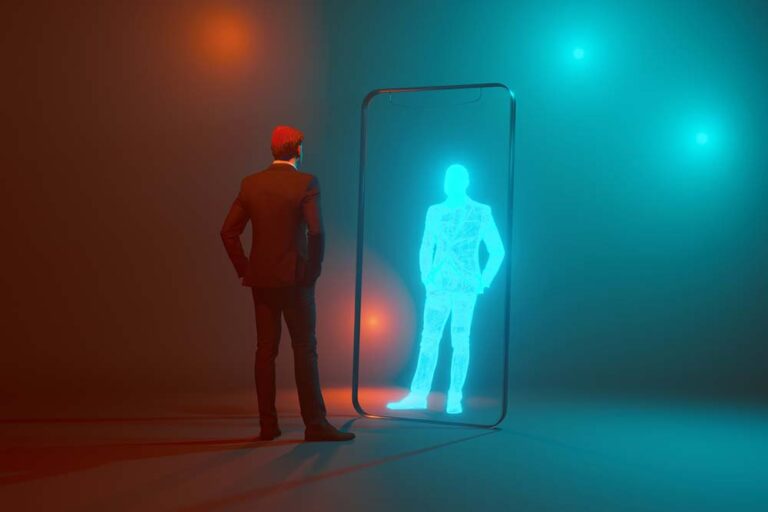Lessons from a Forty-Year Friendship
It doesn’t have to be lonely at the top. And it shouldn’t be. For leaders to successfully model and coach good interpersonal behavior, they have to engage in it.
That’s not always easy. Numerous studies and real-world examples show that managers and executive leaders have difficulty finding friendship in the workplace. For many leaders and those ascending in their career, I’ve found that often the best path to meaningful peer relationships is found outside your own company.
This is something I have experienced personally. Throughout my career, I had a best friend who served as my greatest advisor, ally, and advocate. Because of him, I accomplished more, became more accountable, and achieved more than I thought possible. But we never worked together as professionals.
He passed away recently.
To celebrate his life and the gift of his friendship, I’m sharing some of the lessons he taught me. I’ll also share why I am cultivating new friendships, even while I mourn his loss.
When I was a high school sophomore in Florida, Richard toured my school with another student. We had a brief interaction, but he didn’t decide to attend that school. When we crossed paths years later as students at the same college, we remembered each other and began a friendship that deepened over time.
Throughout my career, I had a best friend who served as my greatest advisor, ally, and advocate. Because of him, I accomplished more, became more accountable, and achieved more than I thought possible. But we never worked together.
Because we recognized that neither of us was pretending to be someone that we weren’t, we trusted one another. We talked openly about our lives, our feelings, and how we navigated becoming men, beyond the physical and emotional aspects of adulthood. We shared the same first name and a willingness to trust and be trustworthy. As happens in all friendships, we had arguments and misunderstandings. But we never used anything against each other that was said in a moment of anger or frustration.
We co-founded a student-led fashion troupe to build our confidence and that of the students who participated in the group with us. This activity became a way to bring together Black students on campus and cultivate traits we knew would be important to us as we moved through college and became professionals. We had to be punctual and organized. We had to collaborate and problem-solve. This troupe became important to its members and culturally significant to the university as a whole, with hundreds of attendees at our fashion shows. It was a community-building, galvanizing experience. We conceived it and led it, and began to rely on each other, both for advice and to get things done.
We complemented each other’s strengths. I corralled the details while he was the far-seeing visionary. We didn’t pull punches, and we had conversations grounded in candor. I describe that as truth delivered with compassion, not facts wielded with brutality. At times, one of us might start a conversation with a statement like, “You’re not going to like what I have to say, but I need to say it to you.” We both understood that we would be better off having those tough talks.
We became confident men but had humility with one another. After we graduated college, Richard and I counseled and mentored each other. When he decided to attend graduate school, he recommended that I take his place in his first job as a liaison in our university’s admissions office. While I held this job and he attended grad school, we would swap stories of our achievements and perceived failures, what we were learning about the professional world and how to interact with others. We shared our hopes, secrets, and vulnerabilities. We bolstered each other when we needed a push or a pat on the back. This was the pattern we followed for more than 40 years.
Richard was uniquely capable of giving excellent professional and personal advice. I believe it was because he gave me advice based on me. It wasn’t based on his perspective, his view, or his values, which made his guidance exceptional. When someone knows your direction and moral compass, they can frame feedback in a way you can accept and absorb more easily. He also taught me an invaluable principle that I still abide by today. If you own up to your flaws and mistakes, no one can use them against you. If you are transparent, you have nothing to fear.
When I reflect on my relationship with Richard, what I will miss most are the feelings of trust, intimacy, and concern that I rarely felt in other friendships. You might wonder, “How do I find a Richard?” Or “Why was this friendship so successful when others fell apart?”
If you own up to your flaws and mistakes, no one can use them against you. If you are transparent, you have nothing to fear.
Of course, it wasn’t perfect. No relationship is. There were times that we made mistakes in our friendship that we weren’t proud of. There were times we had to say, “I’m sorry.” But we both knew the kind of people we wanted to be and the friend we wanted to have. And we always strived to be that for each other and for ourselves.
In the beginning, when we ran into each other at college, we had two things going for us: we weren’t afraid of what the other would think and we were present in the moment. These are two factors that often prevent these kinds of attachments from forming. If I worried that he might ignore me when I said hello, or if I were face down on my phone when he tried to catch my eye, we might’ve passed without a word. You have to be present if you want new attachments and new relationships. You have to be there, physically and mentally, ready to initiate or receive communication.
To be a happy and fulfilled leader, you can’t leave friendship to chance.
Although Richard is no longer here, I have a wide circle of people who I spend time with and share varied interests. I have also developed deeper, meaningful friendships that are important to me. To name a few: Rock Anderson has been a personal friend and professional mentor who has provided me with much-needed counsel and guidance on leadership and the art of perseverance over the last 25 years. I’ve also developed strong friendships with several men (Teddy Brown, Mike Bell, Ray Owens, Walter Lindsey, Andre Paschall, Andre Maxwell, Russ Brant, Howard Kim, and Jeff Stanek) I met on the golf course. I notice that my conversations with these men hold some similarities to my talks with Richard. What resonates with me in these friendships are the traits of humor, candor, authenticity, security in themselves, and transparency. They also give me feedback that I need to hear about things I am doing well and things that could use some improvement. When someone gives those things to me, I open up and give it right back. Those may not be the things that are most attractive to you in a friendship, but you’ll need to put in some effort to find out the traits you find most valuable.
If you want to be a happy and fulfilled leader, you can’t leave friendship to chance. It’s not as easy for leaders to make friends in the workplace. But you may take a page from Benjamin Franklin’s book. Or take one from the hundreds of visionaries and leaders like him who created opportunities to find like-minded souls with whom they could share advice and develop camaraderie. Building a community of peer relationships outside of work can be done in any number of ways: through professional societies, faith groups or houses of worship, hobbies, or volunteer work.
Just as we admire trust, candor, humility, and grace in leadership, leaders need those traits in our friendships, as well. Make space for relationships that are fulfilling, uplifting, and supportive. And remember that in order to have a great friend, you have to be a great friend.







